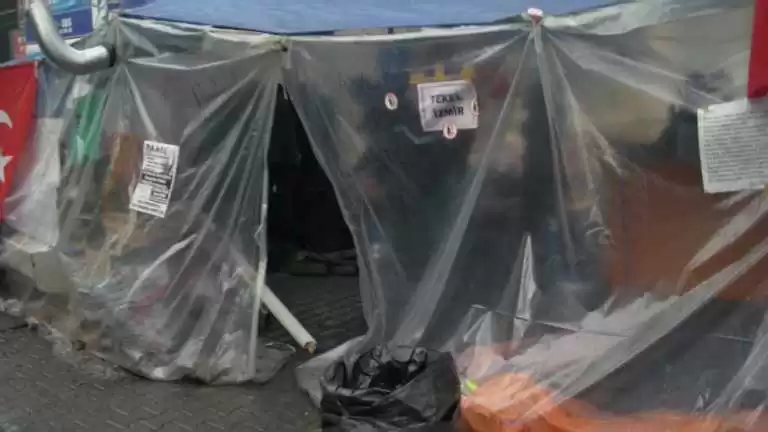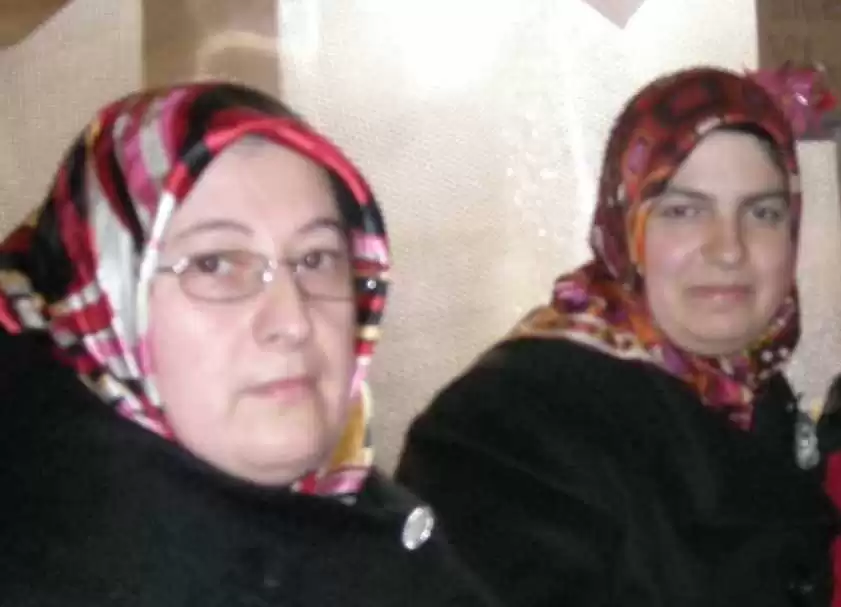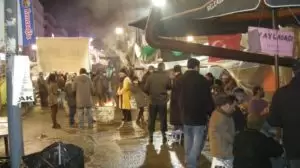TEKEL workers continue their protest for 50 days and counting….
TEKEL – former state-owned tobacco company – workers from all over Turkey converged on Ankara on 15 December 2009 to protest against the government’s snap decision to close their workplaces.
At the end of January, they are still in the city, living in makeshift tents lining the streets in the vicinity of the Turkish trade union 
Some 10,000 workers, family members and supporters arrived in Ankara in December to demonstrate for workers rights, fair treatment and human dignity. They have come to the capital city to confront a government which has betrayed commitments, shows contempt for their trade union Tekgida-Is and is intent on undermining the rights Turkish workers had fought for and won in the past.
Currently there are approximately 4,000 protesters in the city, many having returned to their homes to be with their children during the school vacation now going on. But at the same time, many children have joined their parents in Ankara. “Our children have been raised on resistance”, said one woman from the city of Tokat in northern Turkey who used to work on a cigarette production li
Now they are in Ankara for the final struggle. Their workplaces no longer exist and if the government has its way, they will be robbed of their legal status as workers and all rights and benefits that go with it, including trade union representation. The government has decided to apply a legal statute to these former tobacco workers which will reduce them to casual workers on highly precarious contracts. The government has already subjected some 19,000 former state-owned enterprise workers to employment under the so-called 4-C statute, and the tobacco workers and their union, Tekgida-Is, are now at the forefront of resistance against government authoritarianism and leading the fight to abolish this statute.
The TEKEL workers have received marvellous support from a public that is clearly sympathetic to their struggle and recognises its wider significance. Their tents made from tarpaulin, plastic sheeting and bubble wrap contain carpets, blankets, cots and stools provided by local citizens. Tekgida-Is has equipped each of the approximately 25 tents with stoves and provides firewood and coal while local citizens help out with wooden window frames, pallets and crates. Electricity is provided by businesses and private citizens in the surrounding buildings. A field clinic has been set up in the Türk-Is building staffed by volunteer doctors and nurses. The pharmacists association contributes medicines, the barbers and hairdressers association gives free haircuts and local homemakers collect and launder dirty clothes. A waiter in a restaurant partially obscured by a tent, while regretting that business was slow, asserted that the TEKEL workers were justified in their protest and expressed pride in the support the restaurant was giving by providing water and toilet facilities.
The media, too, have been highly supportive and the service they render by giving a voice to the workers is priceless.
For Tekgida-Is president Mustafa Türkel, workers and trade union rights are a fundamental part of the democratisation process in the Turkish Republic, and it is crucial to safeguard those rights as a contribution to safeguarding democracy. His hands-on leadership is a beacon for the workers who initiated this struggle. His nightly visits to each and every tent are a source of inspiration and encouragement as the workers continue their protest under difficult conditions and far away from home.
